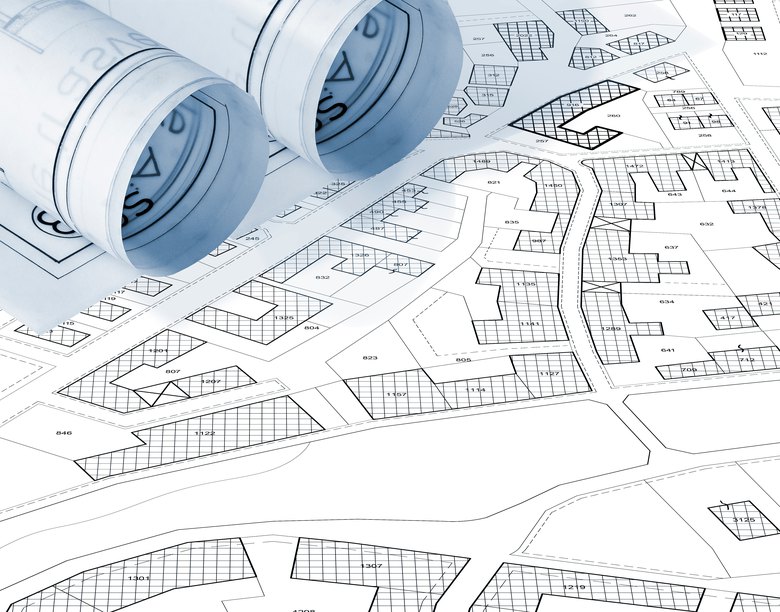Essential Guide: What Is A Property Survey, and How Do You Obtain It?

When buying or selling property, it's essential to have a clear understanding of its exact boundaries and features. This is where a property survey comes into play. But what is a property survey? A property survey is a detailed inspection of the land, identifying the exact boundaries, physical features, and any improvements or structures present on the property. Conducted by a licensed surveyor, it involves precise measurements and observations to create a map or plan that accurately depicts the property’s dimensions and layout. These surveys are crucial for property transactions, construction projects, and legal disputes, ensuring that all parties have a clear understanding of the property's limits and features. In addition to a property survey, a title report is often used in real estate transactions to outline the legal status of a property, including ownership history and any encumbrances.
Why are Property Surveys Important?
Property surveys are essential for several reasons:
- Establishing Boundaries: They clearly define property lines, preventing disputes with neighbors regarding the exact limits of the property.
- Identifying Easements and Encroachments: Surveys reveal any easements (the right to use someone else's land for a specific purpose) or encroachments (unauthorized structures or objects on the property), which can affect property value and usage.
- Assisting with Construction and Development: Accurate property surveys are crucial for planning new construction or additions to ensure compliance with zoning laws and building codes.
- Facilitating Property Transactions: Lenders and buyers often require a survey to verify the property’s boundaries and ensure there are no issues that could affect the transaction.
- Resolving Legal Disputes: Property surveys provide legal documentation that can help resolve boundary disputes and other property-related conflicts.
Where Do I Find My Property’s Survey?
To find your property’s survey, you can start by checking with local government offices, such as the county recorder or assessor’s office, as they often maintain records of property surveys that may be available online or in person. If you recently purchased the property, the title company involved in the transaction might also have a copy of the survey. Additionally, the previous owner of the property may have retained a copy of the survey from when they purchased it. If you’re still thinking, “Where can I find my property survey?” another option is to contact the surveyor who conducted the original survey, provided you have their details, as they might be able to provide you with a copy.
What are the Different Types of Surveys?
Property surveys come in various forms, each designed to serve specific needs and purposes. Learning the different types of surveys can help you choose the right one for your particular project or legal requirement. So, let’s know what are the different types of surveys.
Boundary Survey
A boundary survey defines the exact boundaries of a property. It involves measuring and mapping the land's perimeter to determine property lines and identify potential encroachments. This survey is crucial for resolving disputes, selling property, and obtaining building permits.
ALTA/NSPS Survey
An ALTA/NSPS survey is a detailed survey used for commercial properties, adhering to standards set by the American Land Title Association and the National Society of Professional Surveyors. It includes boundary lines, easements, and other elements affecting property ownership and use, ensuring no discrepancies in the legal description.
Topographic Survey
A topographic survey identifies natural and man-made features on land, including elevation changes. This survey is used in planning and designing construction projects, providing detailed information about the land's contours and surface features to ensure safe and compliant designs.
Mortgage Survey
What is a mortgage survey? It is a simple survey used by lenders to confirm that structures on the property comply with zoning laws and do not encroach on neighboring properties. It provides a basic outline of the property's boundaries and existing structures, ensuring compliance with local regulations.
Subdivision Survey
A subdivision survey divides a large parcel of land into smaller lots for development or sale. It involves creating a detailed plan that shows the layout of streets, utility lines, and other infrastructure, complying with local zoning and land use regulations.
Site Planning Survey
A site planning survey combines boundary and topographic surveys to assist in the planning and design of improvements and developments. It provides comprehensive information about the property's boundaries and physical features, aiding in efficient and compliant project planning.
How Much Does a Property Survey Cost?
The average cost of a property survey can vary widely based on factors such as the size and complexity of the property, the type of survey needed, and the location. How much does a property survey usually cost? For example, a standard boundary survey might cost between $300 and $1,000. More detailed surveys, such as ALTA/NSPS surveys, can cost significantly more, often ranging from $1,500 to $3,000 or more. It’s advisable to obtain multiple quotes from licensed surveyors to ensure a fair price.
Finding a Surveyor: How Does a Residential Survey Help Buyers?

A residential survey provides numerous benefits for buyers, ensuring a clear and accurate understanding of the property being purchased. Here’s how does a residential survey help buyers:
- Identifying Boundaries: A survey accurately defines the property's boundaries, helping buyers understand exactly what land they are acquiring.
- Uncovering Encroachments: It reveals any encroachments by neighboring properties, such as fences or buildings, which could lead to future disputes.
- Locating Easements: Surveys show any easements on the property, which are legal rights allowing others to use part of the land for specific purposes, like utility lines or access roads.
- Highlighting Zoning Restrictions: The property surveys can reveal zoning restrictions that may affect how the property can be used or developed.
- Ensuring Legal Compliance: It confirms that the property's physical attributes align with its legal description, ensuring there are no discrepancies that could complicate the transaction.
- Assessing Flood Risks: A survey can indicate whether the property lies within a flood zone, impacting insurance requirements and future safety considerations.
- Aiding in Mortgage Approval: Lenders often require a property survey to confirm the property's value and condition, making it a critical step in securing financing.
- Planning for Future Improvements: It provides a clear layout of the property, which is essential for planning any future constructions, landscaping, or modifications.
Additional Considerations
When selecting a surveyor, consider their availability and turnaround time. Ask about their process, including how they handle potential issues or discrepancies. Inquire about their fees and obtain a written estimate to avoid unexpected costs. Finally, ensure they have adequate insurance coverage, which can protect you in case of errors or omissions in the survey.
By following these steps and doing thorough research, you can find a qualified surveyor who realizes the importance of survey meaning in real estate and provides accurate and reliable survey results.
Survey In Real Estate: How Long Will the Process Take?
The time it takes to obtain a property survey in real estate can vary depending on several factors. If you are retrieving an existing survey from local government offices, a title company, or a previous owner, the process might be relatively quick, often taking just a few days to a week. However, if a new survey needs to be conducted, the timeline can be longer. Scheduling a surveyor, especially during peak real estate seasons, can take anywhere from a few weeks to a month. Once the surveyor begins, the actual property’s survey process might take a few hours to several days, depending on the size and complexity of the property. Afterward, compiling the final report can add another few days. Overall, you should plan for the entire process to take anywhere from a few days to several weeks.
The Significance of Surveys in Real Estate
A property survey is a vital tool for anyone involved in real estate, construction, or land development. Whether you are buying a property, planning to build, or simply want to know more about your land, realizing the significance of property survey offers invaluable insights and peace of mind. See Below for our FAQs section.
FAQ - Property Survey Answers
What does a full survey include?
A full property survey typically includes a detailed examination of the property's boundaries, structural integrity, and any potential issues or encroachments. It provides a comprehensive overview of the property's condition and legal status.
1. Is it worth getting a survey on a house?
Absolutely, investing in a property survey is crucial for several reasons beyond uncovering hidden issues that might not be visible during a regular inspection, such as underground utilities or property line discrepancies.
2. How long do house surveys take?
The duration of a house survey depends on various factors, including the size and complexity of the property, as well as the type of survey being conducted. A basic boundary survey for a standard residential lot might take a few hours to complete.
3. What happens if you don't get a survey?
One of the primary risks is encountering boundary disputes. Without a survey, you rely on property deeds and assumptions about boundaries, which can lead to disputes with neighbors over property lines, shared fences, or easements for utilities.
4. What does the complete survey report include?
A complete survey report includes detailed findings from the survey, such as property boundaries, structural assessments, any encroachments, and recommendations for further actions or repairs. It serves as a crucial document for property buyers.